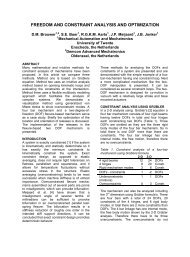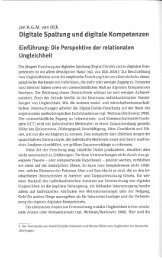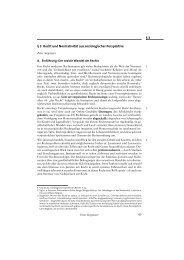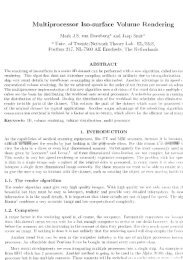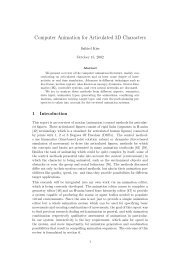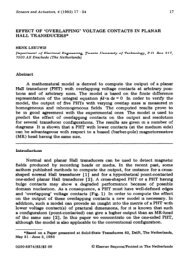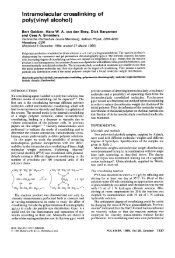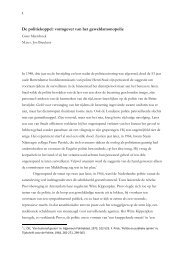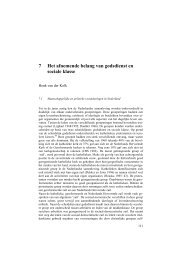Innovation and institutional change: the transition to a sustainable ...
Innovation and institutional change: the transition to a sustainable ...
Innovation and institutional change: the transition to a sustainable ...
Create successful ePaper yourself
Turn your PDF publications into a flip-book with our unique Google optimized e-Paper software.
124 Chapter 4<br />
Let us consider o<strong>the</strong>r fac<strong>to</strong>rs that can explain rate of success or failure. An<br />
important outcome of all paths was <strong>the</strong> impact of <strong>the</strong> nature of <strong>institutional</strong><br />
arrangements. Table 4.9 provides an overview of relative success of paths in<br />
time periods characterised by different <strong>institutional</strong> arrangements within <strong>the</strong><br />
electricity sec<strong>to</strong>r, <strong>and</strong> significant <strong>change</strong> in <strong>the</strong> perception of its <strong>institutional</strong><br />
logics as triggered by <strong>the</strong> oil crises. Some paths were frustrated under<br />
monopolistic conditions, while uptake was stimulated when competition was<br />
introduced. Here, <strong>the</strong> pattern is reasonably coherent. Before <strong>the</strong> oil crisis <strong>the</strong><br />
nuclear route perfectly fitted <strong>institutional</strong> logics of <strong>the</strong> electricity regime <strong>and</strong><br />
<strong>the</strong> broader societal substructures. Processes of re-<strong>institutional</strong>isation had<br />
been underway for decades <strong>to</strong> facilitate integration of nuclear power in<strong>to</strong> <strong>the</strong><br />
electricity system, as <strong>the</strong> knowledge infrastructure was geared <strong>to</strong> nuclear<br />
knowledge generation, political support was high, <strong>and</strong> <strong>the</strong> economy was<br />
expecting continued low-cost electricity. Towards <strong>the</strong> end of <strong>the</strong> sixties,<br />
societal opposition was already starting <strong>to</strong> show, <strong>and</strong> this was accelerated<br />
due <strong>to</strong> <strong>the</strong> oil crises. But most importantly <strong>the</strong> dominant <strong>institutional</strong> logics<br />
came under scrutiny as economic growth as well as energy consumption<br />
growth stagnated. In combination with dependency on fossil fuels, <strong>and</strong><br />
perceived finity, this triggered a search process for alternatives. The paths<br />
most close <strong>to</strong> <strong>the</strong> system enjoyed highest success, but this <strong>change</strong>d as<br />
competition was introduced in <strong>the</strong> course of <strong>the</strong> eighties. In combination<br />
with <strong>the</strong> environmental commitments by electricity distribu<strong>to</strong>rs, a range of<br />
alternatives were moving forward. The process of liberalisation has<br />
facilitated <strong>the</strong> emergence of new entrants in <strong>the</strong> electricity sec<strong>to</strong>r that were<br />
committed <strong>to</strong> moving <strong>the</strong>se alternatives fur<strong>the</strong>r, <strong>and</strong> could adapt <strong>to</strong> <strong>the</strong><br />
<strong>institutional</strong> logics of green electricity <strong>to</strong> exp<strong>and</strong>.<br />
Table 4.9 Success of paths under different framework conditions<br />
Path taken Before Oil crises Transition period Liberalisation,<br />
oil crisis 1973-1989 1989-1998 after 1998<br />
Shift from coal <strong>to</strong><br />
gas<br />
++ +/- + +<br />
The nuclear route + +/- - -/+<br />
Hybrid gas <strong>and</strong><br />
steam turbines<br />
+ + + +<br />
Coal gasification - -/+ + -<br />
Distant heating - + + +<br />
Decentral cogen - + ++ +/-<br />
Wind power - - + +<br />
Solar power - -/+ + +<br />
Biomass - - +/- +/-<br />
Green electricity - - + +



